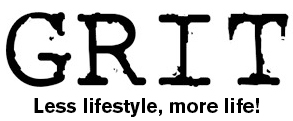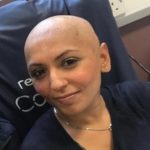

Editor
I am delighted to have been asked to be Editor of GRIT and to help support the Women Empowered community. I believe words have the power to change lives. You can change someone’s point of view, their aspirations and even their beliefs. If you have a passion, an inspirational story or a cause that’s close to your heart then we want to hear from you. GRIT is our monthly newsletter where the WE Community share their experiences. Our contributors come from all backgrounds and walks of life and some have never written before. This is your opportunity to have your say and read about the things in life that aren’t often talked about, but probably should be. Words have the power to change lives. And WE can’t wait to hear yours.
Health Matters
We hope everyone is keeping well during these unsettling times.
Our Spring issue of GRIT is on the important topic of health and we would like to thank our contributors for sharing how their lives have been touched by a medical condition. We hope their words will inspire you to take better care of your physical health and mental wellbeing whether through regular preventative checks, improving your diet, increasing physical activity, or sharing your feelings.
As we all adjust to the current ‘new normal’, we would like to run a special issue of GRIT to give you the opportunity to share your experience, or raise any important issues, as a result of the devastating impact of Covid-19. What important life lessons have you learnt over the past few months? How have you stayed connected with loved ones, dealt with home schooling, or adjusted to the challenges of working from home? Are you a healthcare professional or a key worker with advice or thoughts to share? Do you have a positive story of how Covid-19 has brought your neighbours or community together? Please send your article on ‘My Covid-19 Story’ (400-700 words) to grit@womenempowered.co.uk as soon as possible. As always, we will endeavour to share as many articles as we can.
WE continue to look forward to hearing from you during 2020.
Sunita Behl
Editor
Just as I was planning my 40th birthday celebrations I was diagnosed with stage 2 breast cancer. I had two lumps in my right breast and two small ones in my lymph nodes. The cancer was aggressive, and I was told my treatment would be aggressive too. I had 8 cycles of chemotherapy, 15 radiotherapy sessions and 18 rounds of targeted drugs. I fought hard and I survived. However, all of this only came about because I found a lump while self-checking at home.
Apart from the lump I had no other symptoms. I had no history of breast cancer in my family. I was a non-smoker, a healthy eater and in the best shape I had ever been. So, why did this happen to me? My oncologist said I was just unlucky. After numerous scans (including an MRI, mammogram, CT scan and bone scan), biopsies and blood tests, I started chemotherapy only 3 weeks after my diagnosis. Luckily, the cancer had not spread.
Chemo was tough. It affects your good cells as well as your bad ones. The physical changes I experienced from my treatment were soul destroying, but I refused to let the disease strip away my identity. I lost my hair after my first treatment and was devastated. I hated my wig so much that I decided to rock the bald look instead! I also lost my eyebrows and eyelashes but just kept reminding myself that they would grow back! Chemo effects your joints, your nails, your teeth, your skin, your sleep, your weight, your appetite, your periods and even your taste buds. The list goes on and on….
The fatigue was horrendous. Many days I could not get out of bed before midday. The hardest part was not being able to kiss my kids and take them to school. Chemo destroyed me physically, mentally, and emotionally. I missed my old life and felt very depressed at times. But there were good weeks too when I would get myself into a routine and my beautiful family and friends were always there to lift my spirits when I was down. There were lots of tears – you cannot go through cancer alone. Everyone who knows me, knows that I love to talk, so I did. Talking to friends and family helped me get through each cycle. In addition to my cancer treatment, I needed to have a mastectomy with an immediate reconstruction after my chemo finished. This was a life-saving operation to give me a better chance of survival.
When I was diagnosed I was bombarded by random cures. I have heard them all from coconut water and cassava to turmeric. Everyone seems to have a ‘cure for cancer’! It has been a hell of a journey (16 months!) but my treatment for breast cancer is finally over! I rang the bell for the last and final time!!! No more needles in my veins and feeding me drugs. I am now cancer-free and in remission! My advice to anyone reading this to make sure you regularly self-check yourself.
To everyone who has been there, my amazing husband, my children, my family, my friends, and the wonderful NHS my gratitude is everlasting. I could not have completed this journey without you.
I was diagnosed with gestational diabetes during my first pregnancy eleven years ago at the age of 33. I spent eight months injecting my stomach with insulin four times a day. Eventually I ran out of skin that wasn’t bruised purple and blue.
It was difficult to get to grips with; my sugars fluctuated between extreme highs and dangerous lows. I was warned that I could slip into a coma if my levels dropped so low. Excruciating headaches and nausea were followed by being drained completely of energy in the day, trembling and shaking through the night and pain in my toes, heels, and fingers. I knew that meant nerve damage could be occurring and I was plagued with nightmares of amputation.
Coupled with pre-eclampsia I was not enjoying pregnancy. I remember being home alone one afternoon, I was standing at the top of the stairs and thinking if I throw myself down now, this could all be over. I stood for what felt like an eternity just fantasising about the end of the pregnancy and all the illness accompanying it. I was advised that after delivery the diabetes would leave me and if I looked after myself I shouldn’t have to worry about it returning for many years. Within a year it returned, I had type 2 diabetes and initially my world was turned upside down.
I had not been overweight, I had always been fairly fit and exercised a little, I was green juicing and drinking barley grass and spirulina even back then. I couldn’t understand why this was happening to me. I didn’t have a huge sweet tooth; my parents were diagnosed late in their fifties and sixties. It was too early for me.
Since the return of the diabetes, I’ve been on daily medication. It’s taught me that I need to slow down, stop, and take better care of myself. I can no longer drink my friends under the table, enjoy several cocktails on a night out, have the dessert or even skip a meal. I need to eat better, take regular medication, cut down on alcohol and politely but firmly say no to joining in with excessive drinking. Exercise helps to regulate my sugars and keep me feeling well.
It is not easy being a mother of young children who need me full time, but I’m learning to put myself first because if I am unwell than I am no good to them. So, I take steps to do that, but it has not left me unaffected. It impacts my family time, the energy levels that I have for my children, my social life, my charity work, and anything else that takes up my energy. I am not constantly on top of my sugar levels and can falter at times, the festive season is especially challenging.
Going forward with this, I feel that being well informed about your affliction is the first step. Knowing about all the help available, the forums, the GP, nurse, and dietitian are an enormous help and I am not ashamed to use all the tools and help available. I am forever learning more about the illness. Dropping old bad habits and acquiring new healthier ones has also made a positive impact on my health and attitude towards diabetes. Regular check- ups, daily management, and self-care are important. Teaching my family and especially my children about healthier choices and a fitter lifestyle is of paramount importance to me too. I would love to say that I have reversed it, I have conquered it and come out the other side now diabetes free. (I understand that it can be done in some cases and maybe one day I will be) but for now I take it one day at a time. I manage it daily and every day that I feel well is a small victory for me.
If you know me, please don’t feel sorry for me. I’m fine with it and I manage it. I don’t want sympathy, but maybe do me a favour and don’t ask me to do the second or third tequila with you, because I really can’t!
A traumatic event can change the course of your life, forever. For me this is what happened in August 2003. I had just graduated from university brimming with excitement. I was filled with opportunity and I felt I could do and achieve anything, but my life was about to be catastrophically interrupted.
Whilst waiting at a set of traffic lights on my bike a lorry pulled up beside me. He did not see me in his blind spot and as the light turned green we both set off. Without signalling, he started to turn left, knocked me over and trapped me under his front wheel. I was left with severe physical injuries that took 6 years and over 30 surgeries to recover from. I had to learn to walk again.
Today most people when they look at me see a healthy, active woman, living life to the max but every day still has its challenges. Following the accident, I suffered from post-traumatic stress disorder (PTSD). Back then, the conversation around mental health was very different to what it is now. PTSD was a condition only associated with soldiers who had fought in war zones. People didn’t talk about mental health issues, especially within the Asian community.
Time and time again my doctors suggested I should seek professional help, but my family, unsure of what that it might entail, felt we could deal with it at home. It wasn’t until it became too much for me to handle, and was affecting every facet of my life, that I decided to get the help I needed. It took two years of therapy to get me back on track. I could not have done this alone and there is no shame in admitting this. It helped my family to understand that receiving treatment was beneficial. It did not replace their support but enhanced it.
There is so much that is misunderstood about mental health. Society, the media, our cultural heritage, all have a part to play in our views on how to deal with any issues we might have. But the health of our mind, the most important organ in our body, is often neglected.
Certain mental health issues are easier to talk about than others, some are even deemed to be more ‘acceptable’. Some people may wake up and feel an overwhelming sense of sadness; a darkness around them they cannot shake. Others may have a completely different experience; perhaps a deeply buried childhood trauma may rear its ugly head in adulthood associated with feelings that they cannot rationalise.
My treatment helped me become the person I am today, a survivor. Survival is not an instinct; it is a choice. I had to decide in that moment whether I was going to be defeated or come out on top. I focused on taking each day at a time, drawing strength from wherever I needed to.
A life-changing traumatic moment may appear at any point in your life; bereavement, injury, heartache – whatever it might be – the minds’ power to overcome every obstacle is astounding. Dig deep, believe in yourself and keep moving forward. Positivity is not innate; it is a skill. It is not a given, it is another choice.
When people hear my story the most common thing they comment on is my positivity. And I tell them, the hardest times were when I gave into the darkness and let the negative thoughts take over. But when I focused on the positives, on what I had survived, instead of what had been taken away, that is when I made the most progress. Focusing on what you have achieved and the positive elements in your life, as hard as it might seem, has an incredible impact on the mind’s ability to cope.
And it is always OK to ask for help. In fact, I highly recommend it.
In 2011 I was diagnosed with cancer during the third trimester of my pregnancy. Fortunately, we had a healthy baby but following treatment, life didn’t go back to ‘normal’ and instead had many twists and turns. This included attempts at career changes and going on a journey of travel and self-discovery as a family of three.
Fast-forward several years and I had taken up running to celebrate turning 40. I had returned to my much-loved dental career and was studying for an MSc. Although evidence showed my cancer could progress at any point, I truly felt it was behind me.
When I started to get knee pain I initially put it down to running so, I bought new trainers, invested in a running coach, and saw a great physiotherapist. However, my pain continued, even on walking. A PET scan revealed I had multiple tumours in both knees. At the end of 2018 it was confirmed I had progressed to multiple myeloma, an incurable, yet treatable, cancer.
I started the new year in 2019 with a whirlwind of chemotherapy, followed by an autologous stem cell transplant (a transplant which uses your own stem cells) in the summer. This was followed by maintenance chemotherapy, to hopefully increase the time until the next relapse. In the meantime, I am back to my studies, a little work, and being Mum. After 9 years of living with cancer, my family and I have learnt a few things……
1) It really helps to find peace
I always knew there was a high chance my cancer would come back, so it wasn’t a shock when I relapsed. I was at peace with my diagnosis which meant less resentment and anger so I could focus on the treatment, and ensure my family emerged as unscathed as possible. Dwelling on the ‘what if’s’ does not help.
2) Be grateful for your loved ones
I am fortunate to have an incredible group of family and friends who have given us emotional support, company at appointments, fun days out, childcare, meals…the list goes on. I am so grateful for our tribe who have lifted us up and been there to catch us when we have had the odd fall. It has given our family the strength to navigate the challenges and for that, I am forever grateful.
3) It’s OK to be selfish
This second time around, our son was 8 years old. Our priority was his mental well-being, as well as the health of my immune system following the transplant. We needed to not only survive, but also to manage our mental health. Although everyone wanted to be there for us, this meant saying no to visitors, unless it was convenient for us and they were in good health. Living life on our terms was a necessity.
4) You can ask for help
Asking for help is not a negative thing. Loved ones want to help and take pleasure in it. We have learnt that not only is it OK to ask for help, but to also give direction on the type of help you need. When I am having an emotional day, I have learnt to reach out to friends to pull me up before I spiral lower. It is also a good idea to get professional help.
5) Don’t wait to start living you dreams
A cancer diagnosis, especially in the prime of your life, focuses your mind. I have learnt from my husband, that whatever you want to do, whether to travel, apply for a new job, or start a new hobby you should just go for it. Whatever you are putting off, ask yourself, why not now? It is much more fun to have a go rather than wonder whether you should do something or not.
I do not know what my future holds, most likely more treatment, and a hope of a cure in my lifetime. In the meantime, I am going to carry on living, laughing and just being me.
Join Meera’s journey at https://www.instagram.com/myeloma_mummy/
Men with mental health issues is still, at times, a taboo subject to discuss. As a man you are taught from a young age to be strong, to protect others and to be the head of the family. The words MENTAL HEALTH rarely come into the conversation.
From a young age, I knew I had feelings which I could not explain or justify. On the surface I was always happy and smiling – the life and soul of the party. However inside I was broken. I felt angry, emotional, and confused. I would take on other people’s feelings and emotions. I suffered terribly with guilt; the guilt of being different, the guilt of other’s pain, the guilt of not being able to fit in.
This resulted in me becoming depressed and closing myself off from the world. I hid behind material possessions and would harm myself. I felt like there was a dark cloud over me all the time. I forgot what happiness felt like.
Around the same time, that I felt I had hit rock bottom I was attacked. I was unconscious for three hours and that time changed my life. I suffered from post-traumatic stress disorder (PTSD), had anxiety attacks and developed severe depression. I was so low I tried to take my own life and ended up spending three months in hospital and in a psychiatric ward. This was where I finally got the help that I needed.
For me the hardest part of all this was admitting that I needed help. I thought asking for help was a sign of weakness but, it was the best thing that I ever did. Reaching out meant I was able to get the right therapy, the right guidance, and the right medication to help me. I realised there was professional help available and it was OK for me to ask for it.
My closest friends were very supportive throughout my journey and I owe a lot to them. Today I am in a completely different place to where I was four years ago. I have lost relationships with many close family members and friends, as they could not accept that I had a mental health issue and were unable to help. However, I respect their decisions and wish them the best always. Sometimes you must lose something to gain something. I now have peace of mind, independence and have regained my confidence. I like who I am.
My experience has taught me to take ownership of your actions and to learn from your mistakes. Be mindful, kind and caring towards others. You never know what struggles another person may be dealing with internally. Through my journey I have learnt to be more accepting and willing to help others with mental health issues.
It is important to listen. Listening is sometimes the only thing that is needed.
Do you want to write for GRIT?
Each article needs to be submitted to grit@womenempowered.co.uk by the stated submission date. The newsletter will be sent to our subscribers and will be uploaded on our website and our social media will direct to it.
All submissions should be between 400-700 words. They can be written in the first person where appropriate. They will be edited for content to ensure suitability. Please ensure they are verified with source if it contains factual content. If the topic is personal then please ensure that you have been mindful of others where appropriate and ensure your account is as accurate as possible. Articles submitted will be chosen at the discretion of the editor. Please also be sure to include a photo and your name as you would like to be credited (title / position etc if applicable)
2020 GRIT Topics
NEW YEAR SPECIAL – MISSING YOU
How has your life been impacted by loss? Have you lost a loved one through bereavement, a relationship through divorce, suffered an unexpected redundancy or become a recent empty nester? We want to hear your advice and thoughts on how you coped and learned to move on.
Submission deadline: 13th December 2019
SPRING 2020 – HEALTH MATTERS
Has your life been touched by a major illness such as cancer, diabetes, heart disease or mental health? Please share your story to help raise awareness of any medical condition or health-related advice so others can benefit from your experience.
Submission deadline: February 24th 2020
SUMMER 2020 – LETTER TO MY YOUNGER SELF
If you could turn back the clock what words of wisdom would you pass on to your younger self? What have been your biggest ‘life lessons’? Would you approach or do anything differently in your personal or professional life knowing what you do now?
Submission deadline: May 23rd 2020
AUTUMN 2020 – NO-ONE EVER TALKS ABOUT…
Please share your views and thoughts on any topic which you feel is not discussed often enough and that you would like to raise awareness of.
Submission deadline 26th October 2020
WINTER 2020 – EDITOR’S PICK
A review of our highlights over the past 12 months featuring our most popular 2020 contributors.
WE needs you
Thank you!
Disclaimer: Women Empowered is a wholly social initiative run by volunteers which aims to empower women to make the best of their individual skills and talents and help them to achieve whatever personal and professional goals they may have. We work at a grass roots level, trying to ensure we are easily accessible to all who would like to reach us.
GRIT is a place for the Women Empowered community to share their life experiences. Articles in GRIT represent the views of their authors and do not represent the views of Women Empowered.
To the extent permissible by law, Women Empowered assumes no responsibility for information published in GRIT and disclaims all liability in respect of such information.
Women Empowered is not liable for any injury and/or damage to persons or property as a result of any actual or alleged libellous statements, infringements of intellectual property or privacy rights, whether resulting from negligence or otherwise.
Women Empowered does not warrant that the information published in GRIT is accurate or free from error. Information published in GRIT is intended solely for the purpose of providing general information and/or opinion.
You agree to accept the application of English law to govern matters between Women Empowered and yourself





